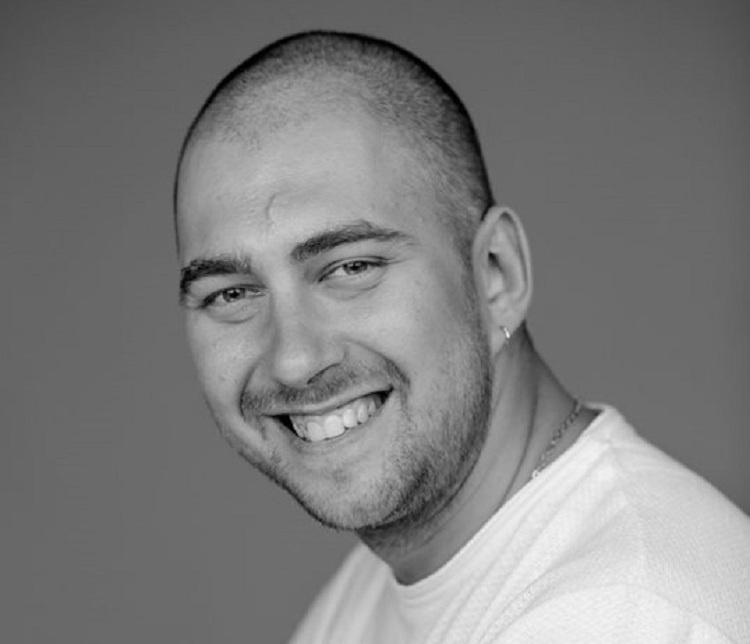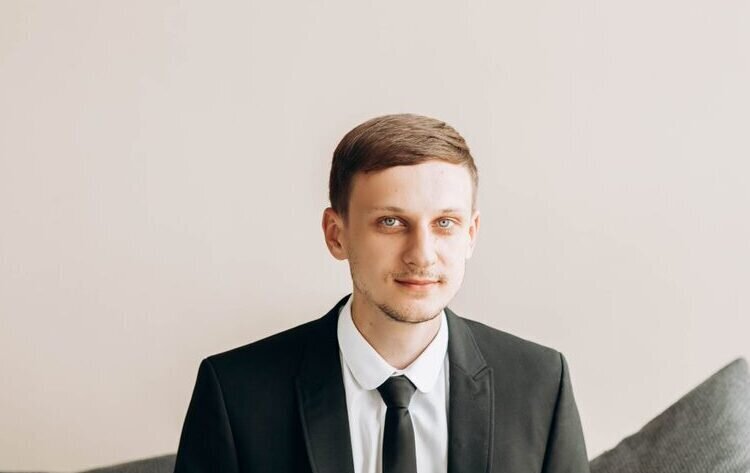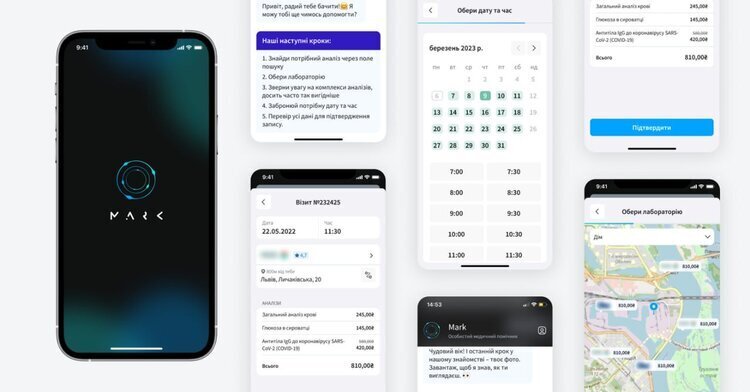Keeping a finger on the pulse: How MedTech startup Mark attracted investment from former advisor to the head of the Ministry of Digital Transformation
Where the funds will go and what about competitors
Recently, the Ukrainian medical startup Mark has received $200,000 in investment. The team is developing an AI assistant for health monitoring. The solution is a result of collaboration between the medical and IT expertise of its founders – Dr Andriy Petrukh and Valeriy Yasakov, the owner of the IT service company Benamix. How has such a young startup obtained international certification? In which markets is it making headway? How many users has it already gained? Mark revealed all this and much more to Mind.
What is Mark? Mark is a personal medical AI assistant that manages the user's medical information and detects health issues at an early stage. The program analyses the user's well-being trends, medical history, test results, data from health trackers, and stores medical records. It identifies 'red flags' and resolves medical queries with clinics, laboratories, and insurers.
This whole system consists of three components:
- Mark mobile application – the user's personal assistant and virtual health tracker;
- Mark Symptom Checker – a diagnostic system based on AI that helps determine the appropriate treatment direction;
- Mark Assistant – integrates various data automation systems and streamlines internal processes in clinics and laboratories.
Currently, Mark has partnerships with Medis, MEDIKOM, MedLab, Health Diagnostics, and Diameb.
How did the idea originate? Valeriy Yasakov, the future co-founder of Mark, fell ill when he was 22 years old. For over a year, he lived without a diagnosis, receiving treatment at various clinics and undergoing six surgeries. His entire large intestine was eventually removed. "Now this is my life sentence," says Yasakov. Later, he was diagnosed with Crohn's disease.
Since then, the goal emerged to create a tool that would allow gathering information about a patient's condition and early detection of complex states. That is how he started developing his own medical project, related to optimising work in laboratories and sharing information among them, clinics, and insurance companies.

Valeriy Yasakov
At the same time, Andriy Petrukh, a medical professional, was already working on the development of the Mark Symptom Checker project – an algorithm for patient questioning aimed at preliminary diagnosis. By the time of their meeting, Valeriy Yasakov already had a methodology. And by combining their projects, the two future founders saw incredible prospects. That is how Mark originated. Its founders created it in 2021, and the mobile application was released at the beginning of 2023.

Andriy Petrukh
What is known about the team? The company currently has 10 professionals with experience in the medical and IT fields. "We are actively growing and have several open vacancies, such as a Manual QA (middle) and a Partner Network Development Manager (B2B)," the company states.
How did Mark obtain certification? The diagnostic system, Mark Symptom Checker, already holds an international quality certificate ISO 13485:2016. "The process took over 8 months, but this recognition was worth it. The product has received expert recognition at the international level," says Yasakov. The ISO 13485:2016 standard encompasses approximately 100 specific requirements considered during evaluation and certification, including quality management systems, management responsibility, resource management, safety, and effectiveness monitoring.
Where is the place of money in this system? The monetisation strategy is through user subscriptions. Mark utilises a freemium model, where basic functionality is available for free. Over time, the application will introduce a range of premium features that users can access through a subscription. The team hopes to gather user feedback while testing these features.
Currently, the subscription cost for early access is $3 per month. After the full functionality release, the price is expected to increase.
How many users have purchased the subscription so far? Currently, Mark has an active user base of over 5,500 users. "This represents 166% overachievement of our current user acquisition plans. However, we have not yet conducted active user acquisition campaigns. We focused our efforts on improving the customer experience and releasing new features. The active user acquisition phase is planned for the near future," the company says.
How does the company plan to promote itself? Through affiliate marketing, collaborations, and Digital and Content marketing tools.
The team also aims to onboard a larger number of medical facilities. Mark Assistant and Mark Symptom Checker are B2B products designed for business automation. "In the B2B segment, we are also targeting patients. The Mark Assistant solution will help clinics, laboratories, and insurance companies optimise expenses and processes, improve service, and free up the time of doctors and medical staff. Additionally, we plan to involve pharmacy networks to cover all aspects of healthcare," the company explains.
Is this product unique? Mark claims that there are no direct competitors with the same product concept and functionality in Ukraine. The closest competitors are HELSI and MedCard24. On the international market, there are similar solutions like Healthily, Ada, Babylon, and others.
What sets this project apart from other platforms is that Mark synchronises with medical institution databases (not just relying on information provided by the user/patient alone), which enhances data reliability and accuracy while reducing human error risks. It also features an integrated Symptom Checker with ISO 13485:2016 certification and a B2B service ecosystem.

How much has been invested in the startup? In total, $500,000. The founders invested about $200,000 of their own funds into the project, and they secured an additional $100,000 from two undisclosed business angels.
Recently, it was announced that Maksym Demianyuk, the co-founder of the fintech company GEO Pay and former advisor to the Ministry of Digital Transformation, joined the investors, contributing $200,000 to the venture. The founders plan to allocate these funds for product development, expansion, and team growth.
What is the target market? Currently, the company is focused on the Ukrainian market. In their strategic plans, they aim to enter two promising markets: the USA and the Scandinavian region (Denmark, Norway, Sweden). The startup is currently studying the potential of these countries, including the demand for the product, its compatibility with the existing digital medical infrastructure, and the local mindset. "All team members are Ukrainians, living and working here. We haven't received any requirements or conditions from the investor regarding relocation, and we probably wouldn't have, as we selected not just an investor but a reliable partner with whom we share values, vision, and the direction of the company and the team's development," Mark comments.
What are the company's other plans? Among the immediate tactical goals are teaching Mark to recognise printed versions of texts (so that users can create a digital archive of all accumulated medical documentation), tracking various health indicators in dynamics, launching a health profile with personalised biomarkers, and enabling family access to manage their children's profiles.